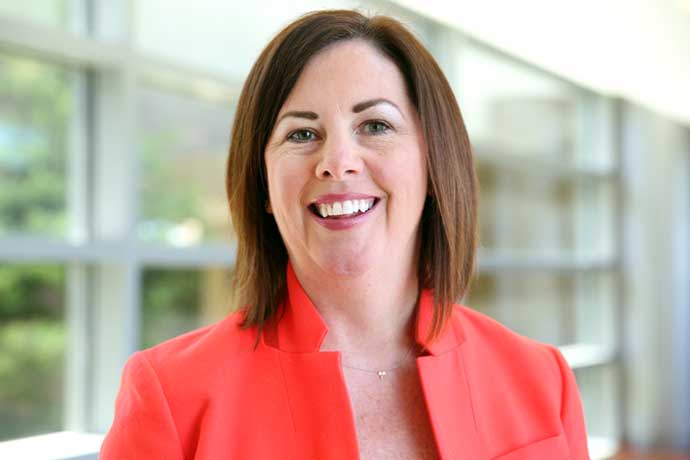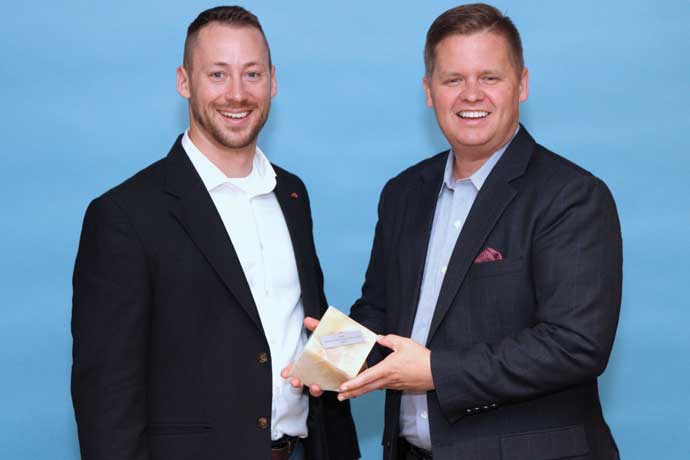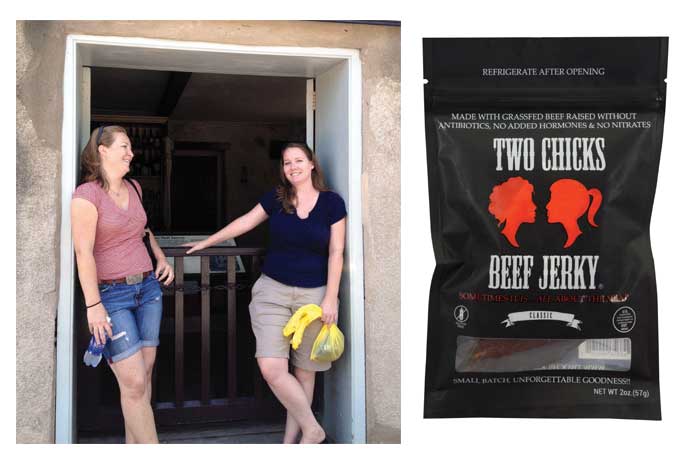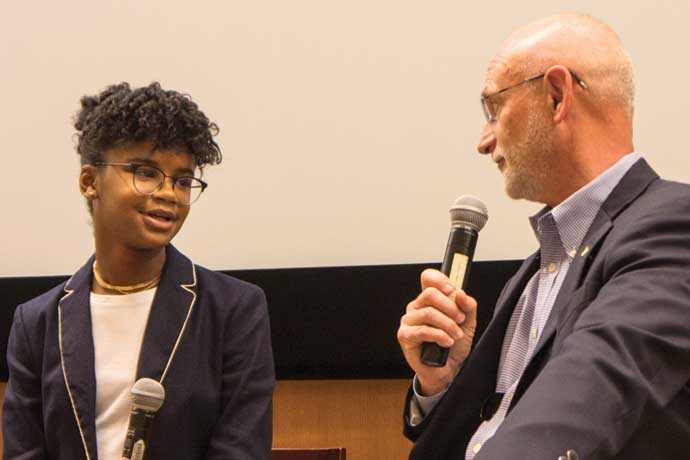Long before there was a labor shortage in the industry, many meat and poultry processors realized the benefits of implementing policies and programs designed to accommodate the needs of employees of varying ages, genders, ethnicities, religions, races, physical limitations and more recently, sexual orientation. Progressive companies have found that establishing inclusionary policies positively affects recruitment and retention while enhancing their corporate image. According to some processors, creating and maintaining a top-down mindset of acceptance creates a business culture that reflects the evolving belief systems and demographics of today’s fragmented population.
“It makes sense when you consider our industry produces, markets and delivers agricultural products via a multicultural workforce to a multicultural consumer force,” says Marcus Lee Hollan, co-founder of the Cultivating Change Foundation, the first national nonprofit to focus on the intersection of the LGBTQ+ community and the agriculture industry.
Diversity and inclusion are good for people and for business. To succeed, like any business initiative, there must be commitment and buy-in from the top, as Randy Day, CEO of Salisbury, Maryland-based Perdue Farms, attests.
“I would suggest it begins with me very openly telling our associates that this is important to business and to me,” says Day, who initiated the company’s first-ever diversity forum this past June.

Industry giants like Springdale, Arkansas-based Tyson Foods Inc. realize the benefits of embracing diversity and inclusion, not only to appeal to potential employees but also to reflect consumers’ lifestyles, tastes and eating habits. Tyson’s Deb Sinta, vice president of talent and culture, agrees that employees with a variety of backgrounds help the company grow in many ways.
“We know that diverse teams innovate better,” she says. “When you want to come up with a new idea you don’t want a group of people who think the same way; you want a mix of backgrounds, experiences and generations to get the best out of your team.”
Diversity and inclusion can have far-reaching impact, according to Ashlee Davis, global lead of external affairs, global inclusion & diversity with Cargill, Wichita, Kansas. “The importance of a truly inclusive environment isn’t just of interest to, say, a lesbian Cargill plant manager or a veteran working on our trading floor, but it is also important to the Cargill employee whose son or daughter is a member of the LGBT community,” she says.
Maple Leaf Foods CEO and President Michael McCain is outspoken about the Mississauga, Ontario-based company’s stance on inclusion. “Maple Leaf Foods is and always will be open, accepting, inclusive and welcoming for LGBTQ members in our community, recognizing everyone as a valued member on our team. We encourage openness. We reject judgment and discrimination. I will always stand for zero tolerance for anything other than this perspective and reality,” he states on the company’s website.
From a small-business perspective, one company’s strategy embodies diversity and inclusion at its core. Breelyn MacDonald, co-owner of Two Chicks Beef Jerky, based in Nevada City, California, is familiar with the stigmas that go along with being one half of a women-owned, meat-based business in a male-dominated industry. The company is also unique in that co-owner, Shannon Ronan, is MacDonald’s wife. The couple acknowledges there are stereotypes they face but they are proud to be part of the industry’s progression. “It is kind of nice to feel like we are breaking those boundaries a little bit,” she says, “not only being two women that own a beef jerky business but two women that are married to each other.”
The couple doesn’t go out of their way to flaunt their marital status, but the name of the company and its logo depicting the silhouetted profiles of two women facing each other serve as not-so-subtle hints.
Positively changing

This past July, the Cultivating Change Foundation held its fourth annual summit for LGBTQ agriculturists and their allies. The inaugural Cultivating Change Summit was held in Atlanta in 2015. The event began as a project spearheaded by Jesse Lee Eller’s Studio 5 team, a San Francisco-based creative learning firm specializing in people development, which he founded and leads as CEO. His longtime friend, Hollan, works as chief operating officer of Studio 5 and the two launched the foundation after the first summit in 2015 as a 501(c)(3) nonprofit. The summit was started with aspirations of laying the groundwork for the long overdue conversations about valuing and elevating the presence of members of the lesbian, gay, bisexual and transgender (LGBT) community in the agricultural industry. That summit drew about 33 attendees. The next two annual events were held in Sacramento and attendance grew each year and in its fourth year, that number grew to about 200.
According to Hollan, the foundation’s co-founder and current executive director, the summit provides a venue for agriculturists in the LGBT community to network and bring together business leaders to educate them on how to make their workplaces more LGBT friendly. Presentations and educational sessions during the summit tackle issues not typically addressed at most other industry conferences and workshops, but also include discussions about production practices, sustainability and education.
Both Eller and Hollan grew up in California in rural areas and were exposed to agriculture and participated in programs such as 4-H and Future Farmers of America. Both recall the struggles of pursuing careers in agriculture as gay men. The summit was started to help people like them navigate those struggles.
Hollan says a key goal of the organization is to answer the question: “What are we doing to sustain talent within the industry and not creating a space where people feel like ‘I have to choose whether or not I stay in agriculture or I become my authentic self as an LGBT individual in that community.’ There’s a divide that still exists today and I think it’s going to exist for some time. I think we are helping alleviate that.” Eller adds that the foundation is “encouraging people to be their authentic selves and to stay in the industry, celebrating agriculture and all the people that are affiliated with it.”
The 2018 summit was held for the first time in the Midwest. It was also the first time Tyson Foods sent a representative to not only attend but also participate in a panel discussion. Tyson was also one of the corporate sponsors of this year’s event, along with other ag-based companies such as DowDuPont Inc. and Monsanto in addition to the US Dept. of Agriculture, which has participated since 2015.
Justin Ransom, senior director of sustainable food strategy at Tyson, says representing the company at the three-day summit spotlights Tyson’s commitment to diversity. Ransom participated in a panel discussion with representatives from other ag-related companies to detail Tyson’s strategies and programs specific to the LGBT community.
“Inclusion and diversity is an integral part of our culture at Tyson Foods,” he says. “It’s important for us as an industry leader to have a seat at the table during these discussions. By ensuring all of our team members feel valued and have access to the same opportunities, we can set the example for others to follow.”
In Des Moines, about half of the attendees were at the event for the first time. Also, this year there was an increase of females at the summit and considerably more gender-neutral attendees, according to its organizers. Hollan is encouraged by the growing number of high-profile, multi-national companies that support the event.
“A voice and a presence from our global agriculture companies sends a message that transcends across industry and geography,” he says. “Global agriculture giants are uniquely positioned to lead the way for diversity and inclusion – both through their employee resource groups as well as the public engagement. Their leadership trickles down through their employees, their vendors, their customers, and eventually, a conversation ends up at the family table at a farm in rural America.”
“Our biggest mantra is celebrating agriculture and celebrating people,” Hollan says.
Going corporate
When it comes to taking the pulse of companies that are leading the pack in diversity and inclusion, one guide is widely viewed as the gold standard: The Human Rights Campaign’s (HRC’s) annual Corporate Equality Index (CEI). Eller says the foundation uses the index to help identify companies that are regarded as champions of diversity and inclusion. “You know that they are open to the conversations around diversity and inclusion,” he says, which eliminates surprises as the movement works to cultivate partnerships in the ag industry and increase its support.
Sinta points out that Tyson regularly participates in the HRC rating and in each of the past two years the company has received a 100 percent.
“That survey was designed by HRC to test the climate for what various companies are offering or not offering when it comes to equity for our LGBTQ team members,” Sinta says, “so we’re really proud of that score.”
Sinta, who’s been in her current role for three years, has enterprise-wide ownership of: talent acquisition, performance management, talent management, team member engagement and development and inclusion and diversity. Talent and culture are closely linked, she says, which is reflected in her title.
“We really believe that diversity is a part of our M.O. as an organization, so when we recruit we are thinking about diversity as well as many other things,” Sinta says. One of those things is adapting with the times.
“Our workforce is changing constantly as we think about our next generation of workers and the fact that our organization is going to be run by millennials pretty soon,” Sinta says. “We have to adjust as that happens just like how we adjust when our consumers change and as the landscape changes.”

Sinta says a positive corporate culture is a strategic key to Tyson’s success.
“We really believe a healthy workplace is an inclusive workplace and a diverse workplace,” she says. “My role is to make sure that we have a talent strategy that supports our business strategy and that we’re always thinking about how we get ready for the future.”
Sinta points out the efforts are not just good for people.
“There’s a business reason to do this too because obviously our team members are a microcosm of our consumers and our customers and that demographic is the same too. It’s important we understand different cultures, different generations.”
To facilitate inclusion, Tyson has formed six Business Resource Groups (BRGs), each of which enables networking and business support for groups that might be underrepresented in traditional corporate cultures. Tyson’s BRGs include the following: the women’s group; the multi-cultural group; the pride group; leaders of tomorrow group (young professionals); the veterans group and the most recent addition, the disability awareness group. All the BRGs are open to and have participation from everyone in the company. “You don’t have to be a millennial to be in the Leaders of Tomorrow group, you don’t have to be LGBTQ to be in the Pride group,” Sinta says.
When it comes to bringing people together to work side-by-side, belief systems and lifestyles will often be at odds, but Sinta says ignoring those differences isn’t a solution.
“I remember a time when that wasn’t necessarily something people felt comfortable talking about at work – those types of issues. I think things have just changed over time and people are consciously trying to advance the corporate environment to make it more accepting and more inclusive in general,” Sinta adds.
Cultivating people
Cargill’s Davis agrees that employers should strive to provide a culture where workers feel like it is a safe space where they can bring their identities, insecurities, unconscious biases and passions to the table. She adds that since the 1890s, when Women in Cargill was formed, the development of the company’s inclusion and diversity policies and programs have contiunuously evolved.
“As a global organization, we realize that it is important that we invite and utilize perspectives from our colleagues around the globe,” Davis says. “This strategic focus was formalized nearly a decade ago with the formulation of the Global Inclusion & Diversity Team.”
In an effort to be a world-class employer with a global presence, Davis says, “we want people to not only see but feel the positive impact that Cargill businesses are having on their everyday lives. .
Like Tyson, Cargill has formed BRGs that blend the personal aspects of employees’ lives and their network of family and friends with their work life.
“The need to evolve this work means that our employees are able to join our Business Resource Groups and participate in company-wide Courageous Conversations on topics related to their own identity or that of a family member or dear friend,” Davis says.
“The identities of our loved ones are just as important as our very own and here at Cargill we have seen the great value this approach brings to our strongest asset – our people.”
She adds that there is a clear business benefit to Cargill’s commitment to its people in this regard.
“Research has shown time and again that diverse teams outperform non-diverse teams. With the help of technology, our world has become more interdependent than it has ever been so the business case for inclusion and diversity continues to prove itself.”
Top-down

In the summer of 2017, Randy Day, CEO of Perdue Farms, was among the top leaders representing 250 companies signing the CEO Action for Diversity and Inclusion pledge, committing to going beyond the obligation of being an equal opportunity employer and advocating for affirmative action. Just over one year later, more than 500 CEOs have followed suit by pledging to advance diversity and inclusion in the workplace. Earlier that same year, senior management at Perdue formally committed to making the company more inclusionary. “Joining CEO Action was a natural next step,” Day says, adding that since joining the organization Perdue has had the opportunity to learn from other like-minded companies. It’s also served to demonstrate his company’s progressive evolution “and to stand with other companies to promote diversity and inclusion throughout the business community.”
For Day, this wasn’t a matter of paying lip service to an issue by invoking a meaningless policy. It was a response to his observation that while the company’s production and processing facilities and the communities and customers Perdue serves reflect diversity, “when I attend industry events, I see a lot of executives who look like me,” he says. To stay relevant in today’s business environment, Day says, “we’ve got to embrace diversity throughout our organization.”
“I made the decision to make diversity and inclusion a personal priority, and to use my position as CEO to champion that throughout our company,” he says.
Soon after making the formal commitment to CEO Action for Diversity and Inclusion, Day met Marley Dias, a 13-year-old social activist and author who spoke at one of the association’s conferences. He was inspired to learn of her #1000BlackGirlBooks Resource Guide and social media campaign that she founded to collect and donate children’s books featuring black girls as the main characters.
Day recalls, “Here was this vibrant teenager, standing in front of a room full of CEOs, addressing us on the very topic we came together to discuss. She immediately impressed me. Equally impressive was her message of taking action and accountability. She inspires people to change things for the better.” Day knew immediately he wanted Dias to share her message with his team at Perdue. Indeed, she agreed to be the keynote speaker at the company’s first Diversity and Inclusion Summit this past June.
“Inclusion happens when we decide it matters,” Dias told the 100-plus attendees representing Perdue’s senior leaders and managers at the summit. “If you don’t purposefully try to be inclusionary, exclusion will be the outcome,” she said.
Day says her message resonated with “the people I am counting on to lead us toward a more diverse and inclusive workplace.”
At Perdue, Day says, many of its management level employees come from an agricultural background. “People of color and women tend to be underrepresented in management and leadership in agriculture,” he says.
“It starts with stating the issue or opportunity out loud and continues with ongoing dialogue. We have established a variety of associate resource groups to provide people a forum to discuss issues in a supportive setting.” Part of those groups include forming inclusion councils at each plant.
“To stay relevant, we need the insights and perspectives of a workforce that is as diverse as the world outside our company,” Day says.
To that end, Perdue appointed Kelly Fladger as its Chief Diversity and Inclusion Officer. Day says Fladger took on the added responsibility of leading the company’s diversity and inclusion efforts, which includes developing policies and procedures and elevating those programs to the executives.
“We want to go from accepting diversity to celebrating diversity,” Day says.
Location, location…
As Day recognizes, the diversity at the plant level isn’t usually a sticking point, but ensuring tolerance and inclusiveness at processing plants is an important factor. Among Tyson’s plants, most of which are in rural communities, diversity tends to be the rule.
“Those are the locations that we have the least issue with diversity,” Sinta says, adding that 35 languages are spoken across the company’s processing facilities and as many as 11 languages at any single plant. Awareness and education are keys to ensuring everyone gets along in these environments.
“We always want to be educating our entire team around unconscious bias and things that are inherent in all human beings because we do all have different backgrounds and beliefs and experiences,” Sinta says.
For Two Chicks, location has likely played a role in the acceptance and growth of the owners’ business, according to MacDonald.
“We do live in kind of a progressive bubble,” she says of the region in northern California where the couple grew up and currently runs its business. “We’ve been really lucky. I think maybe if we were somewhere else in the country it could be a different story and I know it is for a lot of people,” MacDonald says


